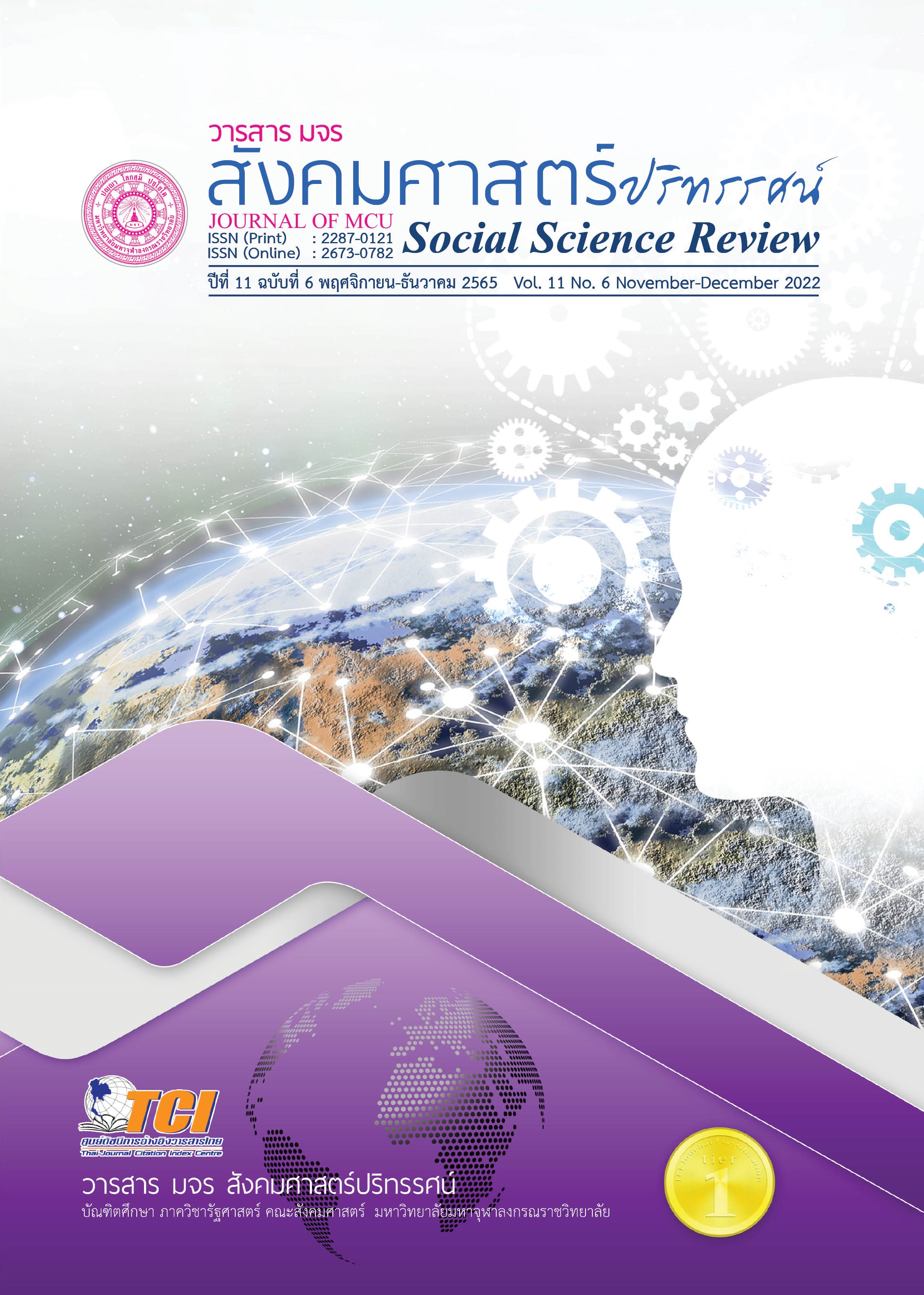ENHANCING TRANSPARENCY AND THE ABILITY OF THAI GOVERNMENT TO MANAGE IN THE ERA OF THE NEW IMPERIALIST COMPETITION
Keywords:
Enhancing Transparency, Ability of Thai Government, ManageAbstract
This academic article aimed to study the importance of transparency in public affairs management, corruption in developing countries and Thai Government's ability to manage transparency. Transparency plays an important role in preventing corruption affecting the country development in many areas. Thailand has been aware of the impact of corruption since the Sukhothai period and has therefore tried to correct and prevent it by using both Buddhist principles and laws. But the corruption does not decrease. There may be similarly causes for developing countries that corruption is caused by defect in the political and economic environment, professional ethics, enactment of laws, habits, customs, traditions and demographics. Importantly, the lack of leaders who sacrifice for the nation. Government is incompetent and in-sincere in making corrections. Many people have called for transparent management of public affairs. Consequently, the National Anti-Corruption Agency (NACC) has been established and the Government Information Act B.E.2540 for government officials to disclose information primarily.
Another part has applied the principles of good governance as a framework for operation but still far from success in promoting transparency. Under the current political economic system, followings should be undertaken: 1) creating a mechanism for information disclosure, 2) developing clear laws, 3) managing information to be truthful, and 4) cultivating the minds of government officials and society members with Buddhist principles that communicate with the truth.
References
ญาดา ประภาพันธ์. (2524). ระบบเจ้าภาษีนายอากรสมัยกรุงเทพฯยุคต้น. กรุงเทพฯ: สำนักพิมพ์สร้างสรรค์.
สนิท เจริญรัฐ. (2507). โอ้ว่าอาณาประชาราษฎร์. กรุงเทพฯ: แพร่พิทยา.
สำนักงานคณะกรรมการป้องกันและปราบปรามการทุจริตแห่งชาติ. (2562). ประวัติความเป็นมา. สืบค้น 25 เมษายน 2565, จาก https://www.nacc.go.th/categorydetail/ 2019112416310492/20191124163234?
Bansal, P., & Kistruck, G. (2006). Seeing is (not) believing: Managing the impressions of the firm’s commitment to the natural environment. Journal of Business Ethics, 67(2), 165-180.
Global, W. (2017). Spotlight on Corruption: Annual Report 2017. Retrieved April 29, 2022, from file:///G:/GlobalWitness_ Annual Review2017.pdf
Goel R.K. & Nelson M.A. (2005). Economic freedom versus political freedom: Cross-country influences on corruption. Australian Economic Papers, 44(2), 121-133
Madhavan, A. et al. (2005). Should securities markets be transparent. Journal of Financial Markets, 8(3), 265-287.
Mayer, R.C., et al. (1995). An integrative model of organizational trust. Academy of Management Review, 20(3), 709-734.
Nicolaou, A. I., & McKnight, D. H. (2006). Perceived information quality in data exchanges: Effects on risk, trust, and intention to use. Information Systems Research, 17(4), 332-351.
Pagano, M., & Roell, A. (1996). Transparency and liquidity: A comparison of auction and dealer markets with informed trading. Journal of Finance, 51(2), 579-611.
Pirson, M. & Malhotra, D. (2011). Foundations of organizational trust: What matters to different stakeholders? Organization Science, 22(4), 1087-1104.
Sheng, Y.K. (2022). What is Good Governance?. Retrieved April 27, 2022, from https://www.unescap.org/sites/default/files/good-governance.pdf
Svensson J. (2005). Eight questions about corruption. The Journal of Economic Perspectives, 19(3), 19-42.
United Nation Office on Drugs and Crime. (2022). Effects of corruption. Retrieved April 27, 2022, from https://shorturl.asia/lhe2o
United States Institute of Peace. (2010). Group Inequality and Conflict: Some Insights for Peacebuilding. Retrieved April 30, 2022, from https://shorturl.asia/zNhLP
Downloads
Published
How to Cite
Issue
Section
License
Copyright (c) 2022 Journal of MCU Social Science Review

This work is licensed under a Creative Commons Attribution-NonCommercial-NoDerivatives 4.0 International License.
In order to conform the copyright law, all article authors must sign the consignment agreement to transfer the copyright to the Journal including the finally revised original articles. Besides, the article authors must declare that the articles will be printed in only the Journal of MCU Journal of Social Sciences. If there are pictures, tables or contents that were printed before, the article authors must receive permission from the authors in writing and show the evidence to the editor before the article is printed. If it does not conform to the set criteria, the editor will remove the article from the Journal without any exceptions.





